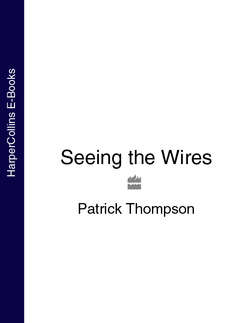Читать книгу Seeing the Wires - Patrick Thompson - Страница 13
VII
ОглавлениеI left the building trade and got a job with the local council. I can’t say which one, because they’ll sue. I worked in the banking section. This made me think of heavily defended vaults and leather-topped desks, for reasons known only to my subconscious. The reality was less impressive. In a large open-plan office – much like the interior of one of the buildings I used to dig foundations for – rows of desks were set regular distances apart. The distances had been chosen to minimize what the team leaders had learned to call Unauthorized Human Interaction, which is to say chatting. There was a lunch hour which it was mandatory to take but which, it was hinted, might better be used for working in. There was an agreeable overtime rate for which no one qualified. A shift system meant that you always had to get up too early and always got home too late. At Christmas a certain amount of jollity would be tolerated: a few strands of sparse tinsel stapled to the ceiling tiles for twelve days.
I would get in at 7.30 AM, regardless of which shift I was on, because I couldn’t afford a car and the bus service was unreliable. I would switch on my computer so that the people in IT would know I was there.
IT was housed on the top floor in a chaotic office full of dangling wires and tangled cables and parts of things that had become dislodged. IT was not subject to the same rules as other departments. IT had a different timescale. They would say, I’ll be there in five minutes. They would arrive in anything up to a month. Everyone wanted to work in IT but there was no way to get there without having arcane and detailed knowledge of Babylon 5.
After logging in, I would look out of a window until nine when a few other people would start to trickle in. I would open up a spreadsheet or two and mess about with figures.
I would do that for eight hours. Then I would go home.
I once asked the man at the next desk to mine – a breach of council policy but I was in a daredevil sort of a mood – what happened to all of the figures we put into spreadsheets.
‘Well,’ he said, pushing his spectacles onto his nose, ‘when we finish each sheet they are amalgamated into another spreadsheet and ratified against a third spreadsheet held at head office. If they match, they are themselves amalgamated into another spreadsheet. Each of these transactions is logged on a fifth spreadsheet. This fifth spreadsheet is checked against the performance timetable laid down in the spreadsheet kept at area headquarters, and then the results of all of these cross-checks are entered into a spreadsheet.’
‘And then?’
‘Then they bin it and we start all over again.’
‘Why?’
He looked at me. His spectacles – the perennially unfashionable type with a heavy black frame – began their descent to the end of his nose.
‘What?’ he asked, confused.
‘Why? Why do we do all of this work just to have it thrown away?’
He looked at me some more.
‘Because they pay us to,’ he said, and never spoke to me again.
